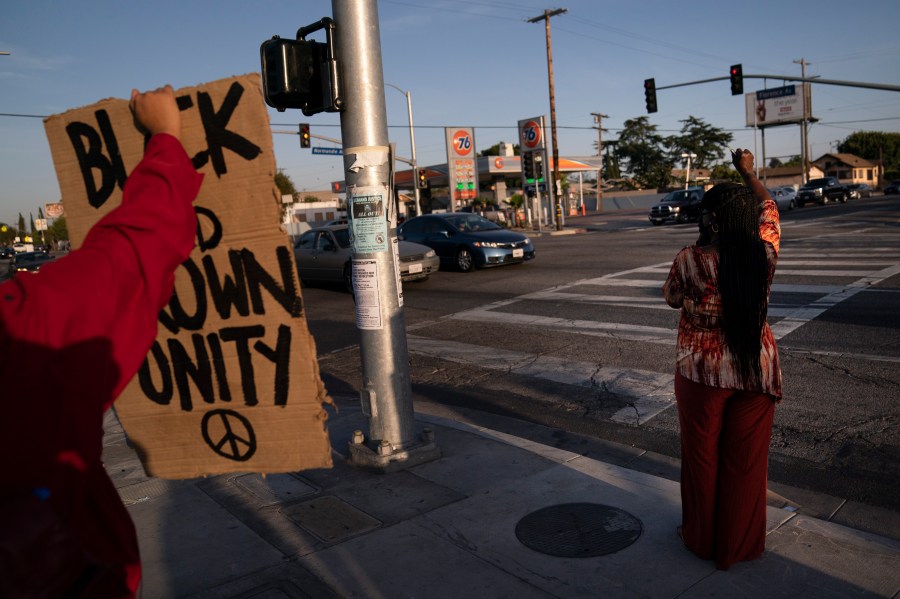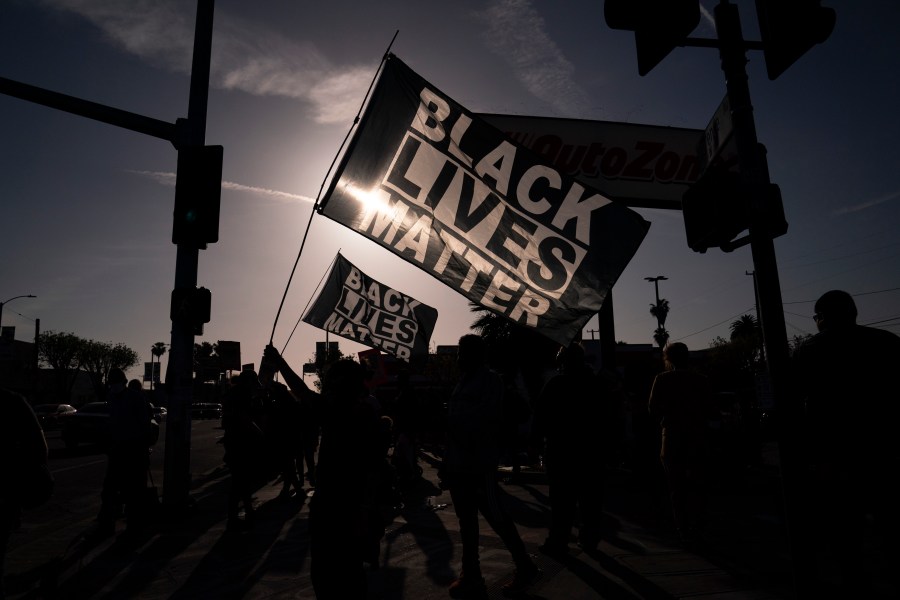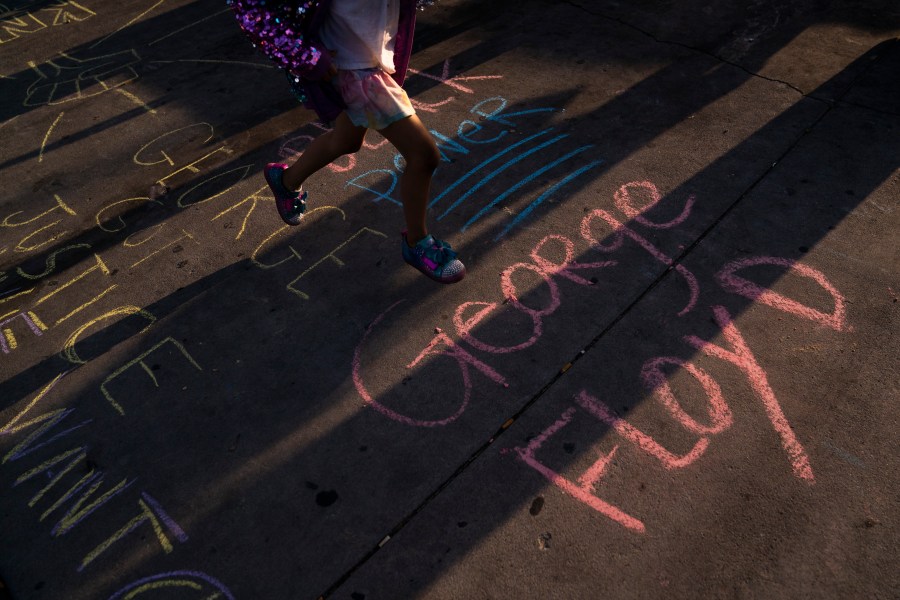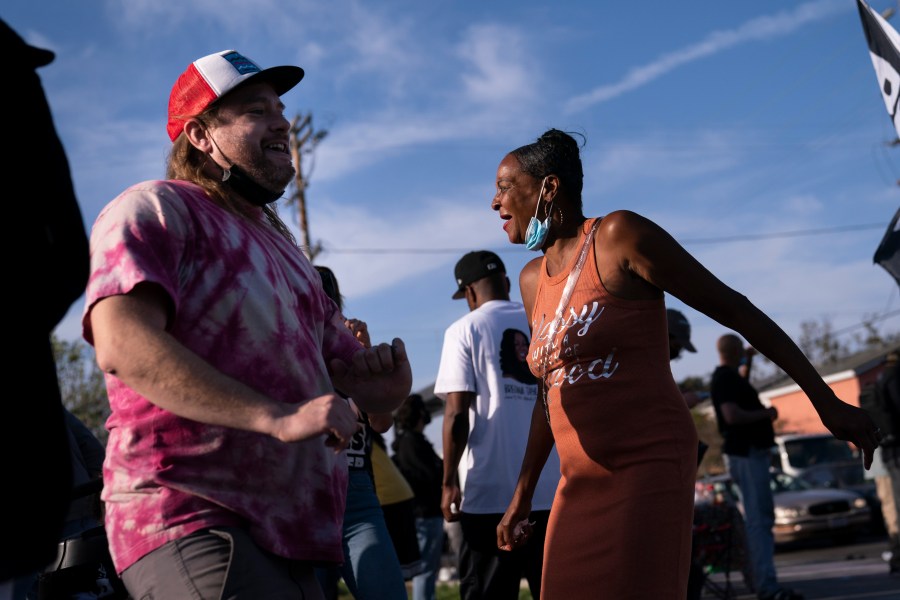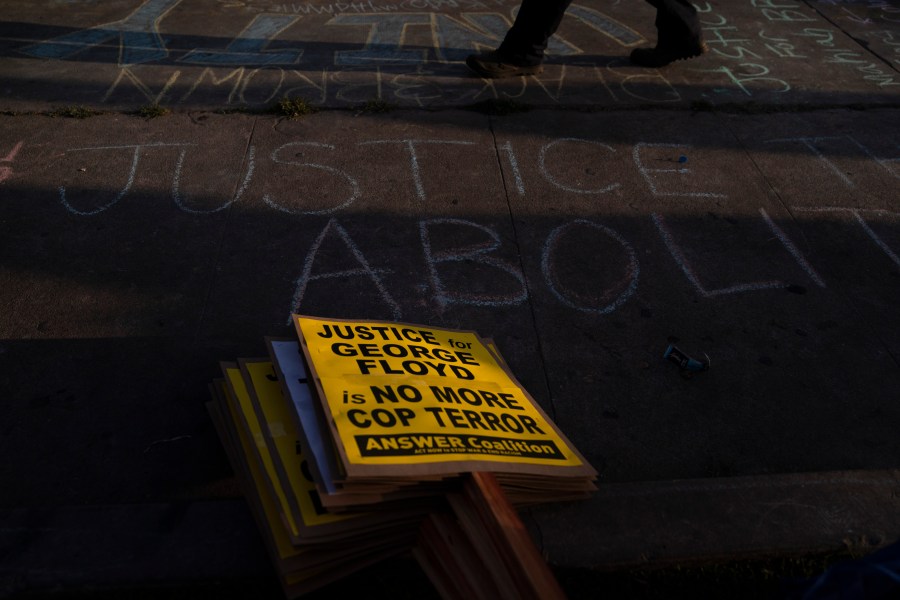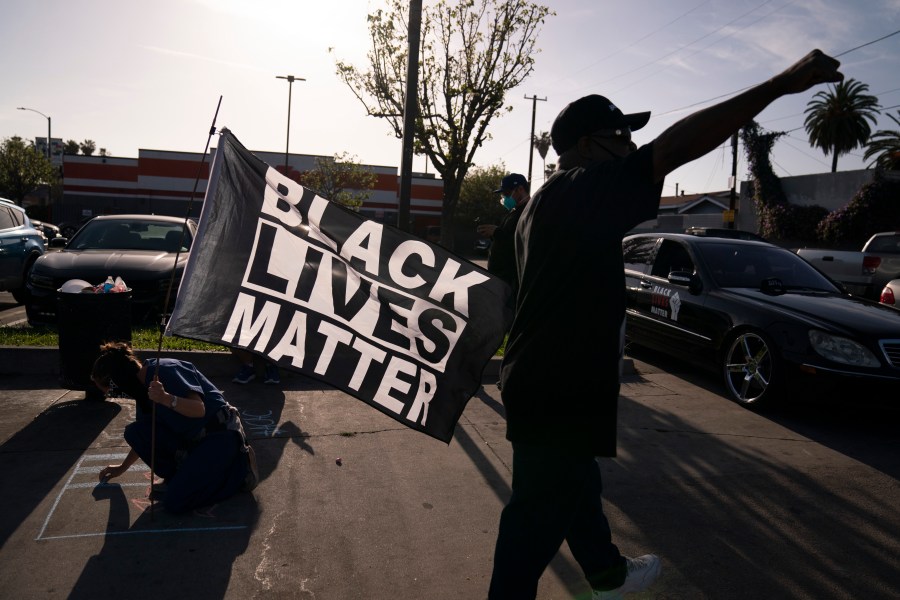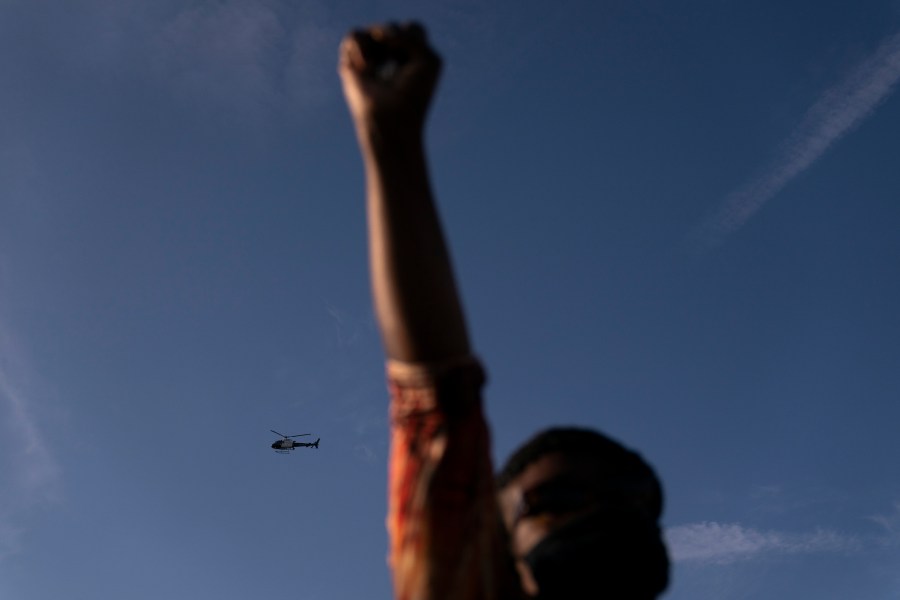Two Black men. Two big cities. Two horrifying videos. Two different verdicts.
In 1991, four Los Angeles police officers brutally beat motorist Rodney King and their acquittal on state charges a year later prompted one of the worst race riots in American history.
In 2020, a Minneapolis police officer knelt on George Floyd ’s neck for 9 1/2 minutes as he gasped repeatedly, “I can’t breathe.” The excruciating bystander video touched off protests against police brutality and racial injustice worldwide.
On Tuesday, former Minneapolis police officer Derek Chauvin was convicted of murder and manslaughter. The verdict was met with both joy and sorrow nationwide — especially at an infamous intersection in South Los Angeles.
The place where Florence and Normandie avenues meet is indelible in the history of the city of Los Angeles. Next week will mark 29 years since the intersection became a flashpoint for violence after the King verdict came down.
The cross-streets are where, in the aftermath of the jury’s decision, Black men dragged white truck driver Reginald Denny from his big rig and beat him nearly to death. Denny survived the attack, which was captured on live TV.
The uprising spread as the city burned. Hundreds of businesses were looted and destroyed. Entire blocks of homes and stores went up in flames. More than 60 people died by shootings or other violence.
On Tuesday, however, the intersection was a place for celebration in the wake of Chauvin’s guilty verdict. A racially diverse group of several dozen people gathered to praise the jury’s decision and call for continued accountability.
A Black man in a Lakers cap danced on the street corner, chanting: “Get used to this, get used to justice!”
Passing cars blared their horns as demonstrators waved signs and Black Lives Matter flags. Music and the smell of fresh tacos were in the air.
“Justice has been done,” said Sherri Burks, 52, as a man walking by added “finally!”
Burks lives around the corner from Florence and Normandie and recalled the 1992 riots.
“I was right here,” she said. “Burning everywhere, stores getting busted up.”
Randy Dulaney, 62, of Pasadena, lived not far from the intersection. He came back to visit an aunt Tuesday and went to the intersection to join the celebration and “to show love back to the neighborhood.”
“Today we have more power,” Dulaney said. He wore a cap embroidered “I can’t breathe” and a T-shirt with pictures of late civil rights leader and U.S. congressman John Lewis.
Joyce Robertson, 69, stood on the curb Tuesday, her arm outstretched in triumph as passing cars honked in support.
“I was here, how many decades ago, on the same corner,” she said.
But Robertson said there is still work to be done. She saw parallels between King’s beating 30 years ago and the police treatment of Black men today.
“It’s a different time but it’s very similar conditions,” she said. “They just don’t get it.”

